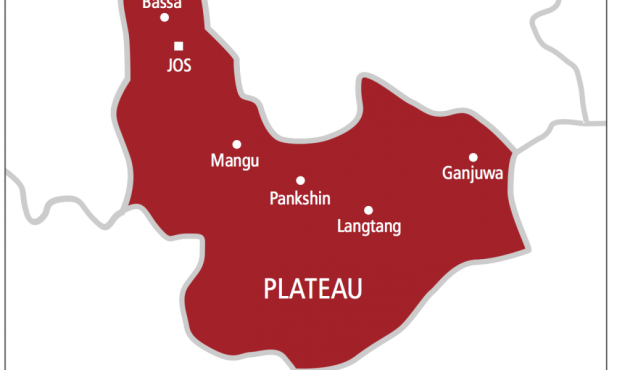We’ll end kidnapping, insecurity in South East soon — Army Chief
The Chief of Army Staff, Major General Taoreed Lagbaja on Thursday promised that insecurity ranging from kidnapping, banditry and other criminal activities currently ravaging the South East region especially Isiukwuato and Umunnochi local government area of Abia state will soon end. This is as he assured that all security agencies are working round the clock to address the insecurity in the region. Lagbaja who was represented by the Deputy Director Operations Army Headquarters, Brigadier General Gabriel Olufemi Esho, made the commitment during a meeting with the House of Representative Ad-Hoc committee investigating the killing and kidnapping in Umunochi Community in Abia state. According to Lagbaja, the threat of Kidnapping remains a potent security threat, especially in the two local government areas stating that, particularly in the month of July this year, the region recorded cases of kidnapping and attacks by criminals suspected to be elements of the proscribed people of Biafra (IPOB). He said instance security network in these two local governments suffice to mention that the Nigerian police and other security agencies are also collaborating with the Army but due to certain challenges, the bulk usually lies with the Nigerian army. He said ”The House of representative through its letter dated 3rd August 2023 requested that the Nigeria Army to submit a memorandum to the ad-hoc committee to interface with relevant security agencies and stockholders in respect of incessant attacks of kidnappers, assassination and banditry and other criminal elements in and around these two local government areas, it is pertinent to state that incidence of kidnapping in Southeast region particularly in the second quarter of this year. “Recently efforts of the Nigerian army through it’s Division in conjunction with other security agencies has diminished the treat of kidnapping. He however assured the committee that all effort will be made to bring the perpetrators to book and restore peace back to the region. Also Speaking that the meeting, the assistant Commandant General, NSCDC, Philip Ayuba, who represented the Commandant General NSCD, Abubakar Audi said that part of the challenge the security agencies face in tackling the insecurity in the region is lack of cooperation from members of the community where the acts are been carried out. “I want to state that we are out in synergy with other security agencies and have been able to look around and found out that there is a very good number off the proliferation of small arms and light weapons. ” We found that the in that environment almost everybody has a weapon and there is the willful disposition of many communities to purchase locally made arms and there is lack of this cooperation by the community where we are trying to get information from them when they go there for manhunting for them to volunteer information of who and who are involved in that criminal act. “To approach them even within themselves that are afraid of themselves. In this opening remark, the Chairman of the committee, Hon Obinna Aguocha at the Public Hearing, said that the challenges face are not mere statistics or headlines; they are real-life manifestations that affect the lives of our people, disrupt the functioning of institutions, and impede the growth of the affected region. He noted that instances of criminal activities, banditry, kidnapping, assassinations, communal clashes, and threats to life have shaken the very foundation of the societies, adding that as leaders and stakeholders, it is incumbent upon them to come together, transcending differences, to find sustainable solutions that will quell these threats and pave the way for a brighter future. ” We gather here today not just as representatives of various organizations and institutions, but as concerned citizens united by a common goal to interface with the relevant security Agencies to reduce kidnapping, assassinations and banditry in and Around Isiukwuato and Umunnochi Local Government Area of Abia State, the restoration of safety, harmony, and progress in those cherished communities. “Our commitment to addressing this crisis is evident in our presence here today. We recognize that insecurity cannot be combated by one entity alone; it requires a collective, multi-faceted approach that encompasses the perspectives and expertise of law enforcement agencies, community leaders, policymakers, scholars, and citizens. “This Committee Hearing provides us with the opportunity to harness these diverse perspectives and channel them into a coherent, actionoriented strategy. “As we navigate the complexities of security concerns, it is crucial to acknowledge that no single solution can provide a quick fix. It requires a holistic approach that encompasses law enforcement, community engagement, socio-economic development, and effective engagement from goverments. We must be prepared to tackle the issues at their core and work collaboratively to ensure lasting solutions that would stand the test of time. “The cross-border dynamics of the primary focus area, brings additional complexity to the challenges of the task ahead. The common borders, shared with 3 other states connect the primary focus area to Ebonyi State via Isiagu, Enugu State via Agwu and Imo state via Okigwe. The opportunity for interstate collaboration presents itself and must be explored to foster regional collaboration. The challenges faced by one state ripple across its neighbors, and therefore, our strategies for resolution must be collaborative and inclusive. “By synergizing our resources, expertise, and perspectives, we can create a stronger front against insecurity and strengthen the bonds that binds us together. “The complex interplay or interest and non state actors within this region is compounded by the presence of armed entities such as the Eastern Security Network (ESN) and the Indigenous people of Biafra (IPOB) Alongside Private Security Organization like the Royal Switch Services (RSS) and others within the gap. “This intricate landscape demands a comprehensive and collaborative approach to address the multifaceted security challenges. The effort has to accommodate the concept of back-channels negotiations, which may emerge as a potential avenue for a permanent conflict resolution in the South East. “Such negotiations, when properly managed, can help bridge gaps, reduce tension and build trust between the non-state actions, state security agencies













